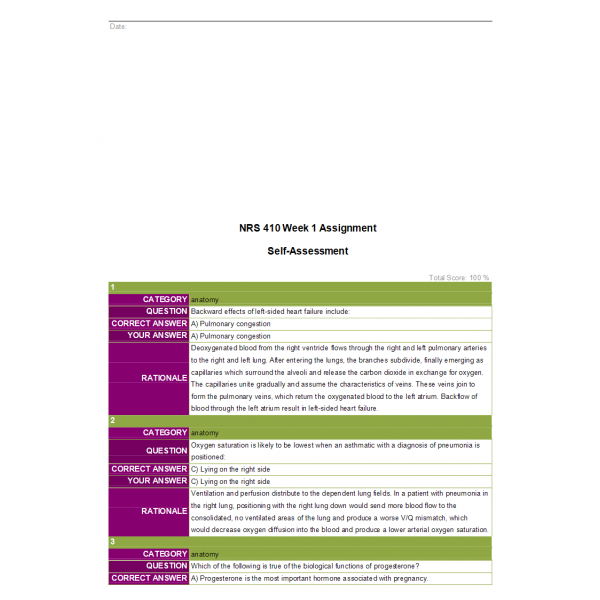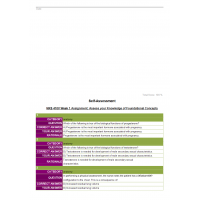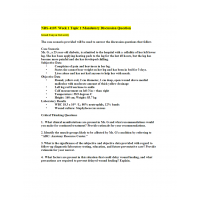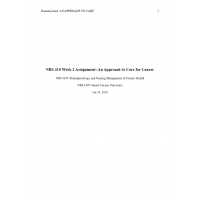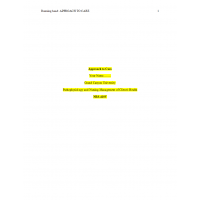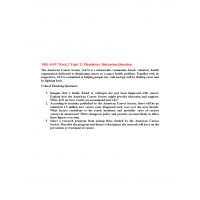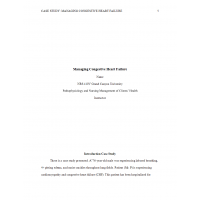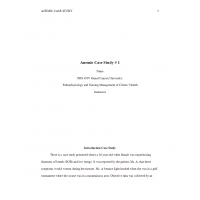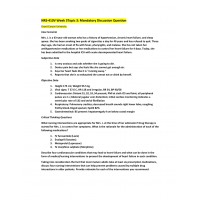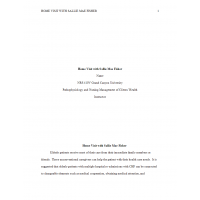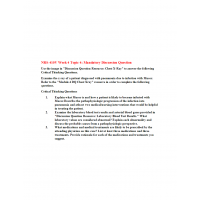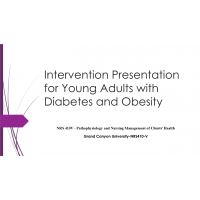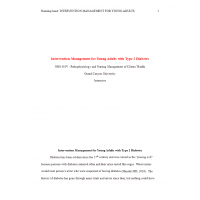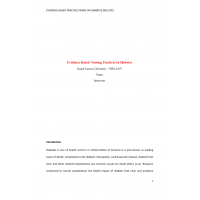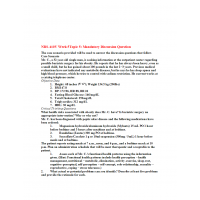NRS 410 Topic 1 Assignment Assess your Knowledge of Foundational Concepts
Assess your knowledge of foundational concepts essential to the nursing management of client health by taking the interactive quiz, located in the media "Arterial Blood Gas Interpretation." http://lc.gcumedia.com/zwebassets/courseMaterialPages/nrs410v_self-assessment-v1.1.php
The quiz is designed as a tool for self-assessment. When you encounter questions that seem vaguely familiar, click on the media's study materials, which are organized by topic (e.g., anatomy, biology, chemistry, pharmacology). This media will serve as a refresher for the concepts that build upon one another in nursing practice.
You will have the opportunity to retake the quiz until you achieve a passing score of 100%.
1. Backward effects of left-sided heart failure include:
2. Oxygen saturation is likely to be lowest when an asthmatic with a diagnosis of pneumonia is positioned:
3. Which of the following is true of the biological functions of progesterone?
4. Ausculation of the chest reveals bilateral fine crackles in the bases bilaterally, indicating:
5. In performing a physical assessment, the nurse notes the patient has a configuration to the chest. This is a consequence of:
6. The diet of a patient in end-stage kidney disease is restricted in all of the following except:
7. Common manifestations of bacterial pneumonia include all of the following except:
8. Why is heat an effective means of sterilization?
9. What is the function of hemoglobin?
10. In addition to hypertension,
pre-eclampsia is characterized by:
11. Laboratory test results indicative of thrombocytopenia, in addition to a low platelet count, would be:
12. The oxyhemoglobin dissociation curve represents the relationship between the:
13. A calculated ABG value that indicates excess or insufficiency of sodium bicarbonate in the system is:
14. List the enzymes whose levels are elevated in the blood serum following an MI.
15. What effect does glycogen metabolism have on glucose levels?
16. Interpret the following ABG results.
17. Interpret the following ABG results.
18. Which of the following may be a reason to order an ABG on a patient?
19. You are reviewing the results of an ABG. Both the pH and the HCO³ values are abnormal and match. The primary problem is:
20. The respiratory system compensates for changes in the pH level by responding to changes in the levels of:
21. Your patient is interested in trying medication to improve low mood / depression. All of the following medications might be appropriate except:
22. An intervention that would contribute toward the healing of a peptic ulcer is:
23. What occurs when glycogen metabolism is stimulated by insulin?
24. What is the medical application of cortisone? Cortisone is used to treat:
25. Therapeutic interventions focused on increasing the oxygen supplied to the heart and decreasing the heart’s demand for oxygen include:
| Institution & Term/Date | |
| Term/Date | Grand Canyon |
NRS 410V Week 1 Assignment, Assess your Knowledge of Foundational Concepts 1
- Product Code: 2019
- Availability: In Stock
-
$10.00
Related Products
Tags: NRS 410V

